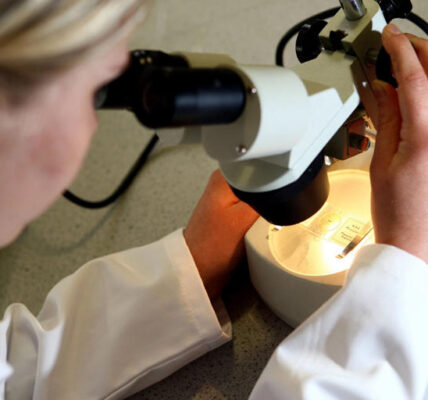Breakthrough in Inflammatory Bowel Disease Research
Breakthrough in Inflammatory Bowel Disease Research brings exciting news for those suffering from chronic conditions like Crohn’s disease and ulcerative colitis. This recent discovery could lead to new treatments using drugs already available on the market. Researchers are calling it a significant advancement in the fight against inflammatory bowel disease (IBD).

© GB News
What is Inflammatory Bowel Disease?
Breakthrough in Inflammatory Bowel Disease Research shines a light on the complex world of IBD, which includes Crohn’s disease and ulcerative colitis. These conditions cause chronic inflammation in the digestive tract and have become increasingly common. Recent figures reveal that over 500,000 people in the UK were living with IBD in 2022, nearly double the previous estimate of 300,000.
Despite the high prevalence, current treatments are not always effective for everyone. The challenge in developing new drugs has been a lack of understanding about what causes IBD in the first place.
The New Discovery
The recent Breakthrough in Inflammatory Bowel Disease Research centers on a key discovery: a specific part of DNA active in certain immune cells is responsible for causing inflammation in the bowels. This DNA segment has been linked to the development of IBD.
Currently, there are no drugs designed to specifically block this DNA segment. However, researchers have found that existing medications used for non-inflammatory conditions might be effective. Tests conducted by experts at the Francis Crick Institute, in collaboration with UCL and Imperial College London, have shown promising results. These medications decreased inflammation in both immune cells and gut samples from IBD patients.
However, these drugs come with side effects affecting other organs. The next step is to figure out how to deliver the medication directly to the immune cells responsible for the inflammation, minimizing side effects.
Impact on Patients
The Breakthrough in Inflammatory Bowel Disease Research is a ray of hope for many patients. Lauren Golightly, who was diagnosed with Crohn’s disease in 2018, shared her experience. She has faced numerous hospital visits, various medications, and even surgery to manage her condition. The uncertainty and challenges of living with IBD have been difficult for her.
The Science Behind the Discovery
Christina Stankey, a PhD student at the Francis Crick Institute and co-first author of the study, added: “IBD and other autoimmune conditions are really complex, with many genetic and environmental factors involved. Finding one of the central pathways and demonstrating how it can be switched off with an existing drug is a massive step forward.”
Next Steps in Research
The Breakthrough in Inflammatory Bowel Disease Research has been published in Nature, a leading scientific journal. This discovery marks a crucial milestone, but the journey is far from over. Researchers are now focused on refining the method to deliver the medication directly to the immune cells, aiming to reduce side effects and enhance the treatment’s effectiveness.
The hope is that this new approach will lead to more reliable and effective treatments for IBD patients, improving their quality of life and providing a new avenue for managing these challenging conditions. As the research progresses, patients and healthcare professionals alike are eagerly awaiting further developments that could transform the landscape of IBD treatment.
This breakthrough not only offers hope to those living with IBD but also represents a significant advance in our understanding of inflammatory diseases. With ongoing research and refinement, there is optimism that this discovery will lead to more targeted and effective therapies, changing the lives of countless individuals affected by IBD.
ALSO READ:
New Covid Variants FLiRT and LB.1 Symptoms: 9 Unbelievable Things You Didn’t Know



